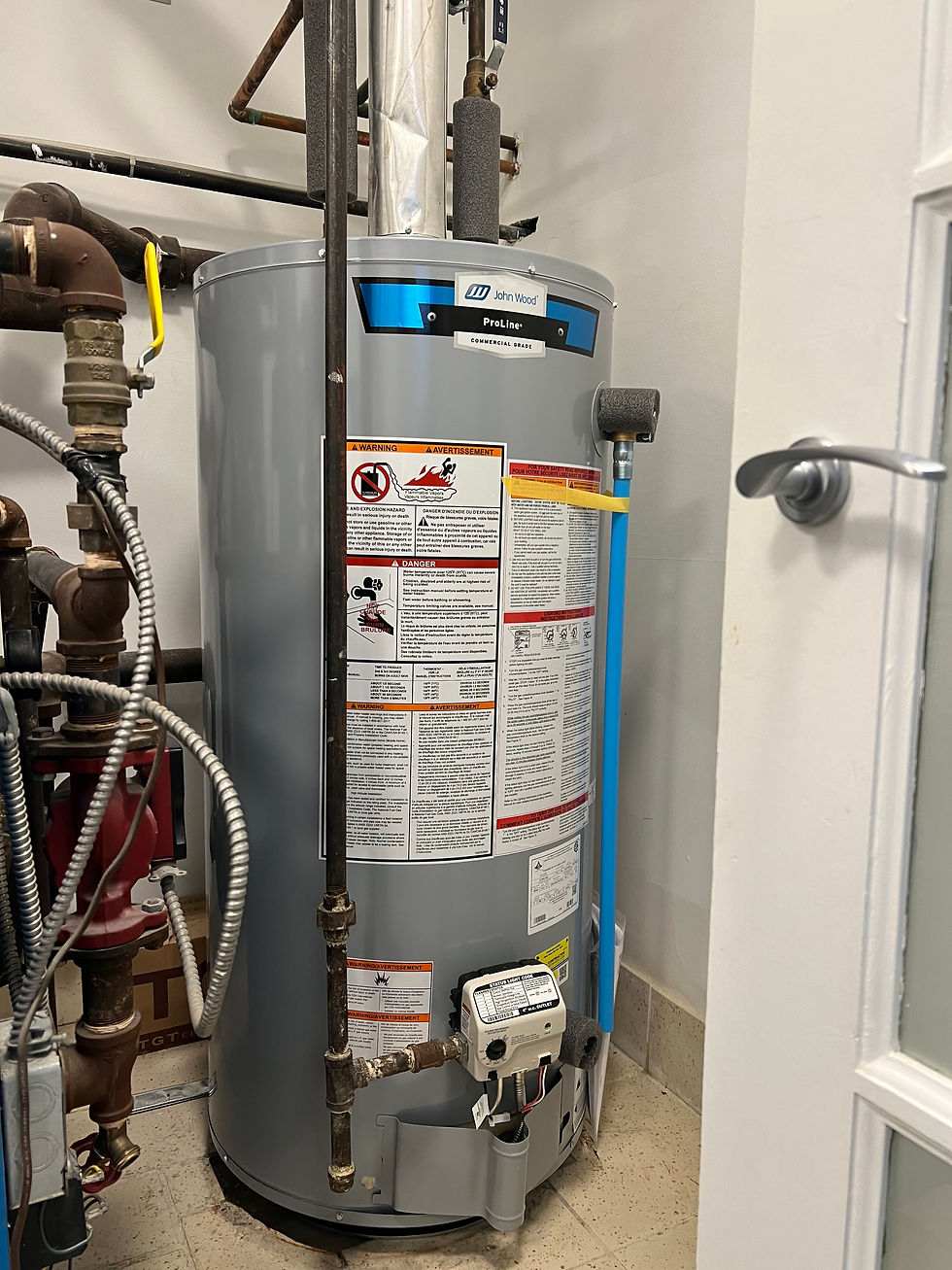Top Essential Home Safety Tips for Gas and Heating Systems
- thermexheat
- May 29, 2025
- 2 min read
If a hot water tank remains unused for two weeks or longer, hydrogen gas can accumulate. Since hydrogen gas is highly flammable, it is important to open a hot water faucet at the kitchen sink for several minutes before using any electrical appliances connected to the system. Avoid smoking, open flames, or any ignition sources near the faucet while it is running.

Power-Vent Hot Water Tank Your natural gas meter is built to withstand winter conditions and keep your home warm and comfortable. However, snow or ice buildup on the meter can interfere with its ability to regulate gas pressure, posing potential risks. If you notice snow covering your meter, gently clear it using a brush or broom. Avoid using sharp tools, as they could accidentally cause damage.

Gas Meter If snow builds up in front of your furnace vent pipe, it can block the exhaust, causing your furnace to shut off as a safety measure due to potential carbon monoxide buildup inside your home; it's crucial to clear the snow regularly, especially during heavy snowfalls, to ensure proper ventilation and prevent dangerous situations.

Exhaust & Intake Vents Bonding plumbing fixtures is a critical safety measure that helps protect your home and its occupants from serious hazards. By electrically connecting and grounding all metal pipes and fixtures, bonding prevents the risk of electrical shock and reduces the chance of electrical fires. This process ensures that in the event of a fault or stray electrical current, the electricity is safely directed to the ground rather than energizing exposed metal components. Not only does bonding provide an essential layer of protection, but it also ensures your plumbing system remains compliant with local building codes and national safety standards.

Binding of Water Fixture



